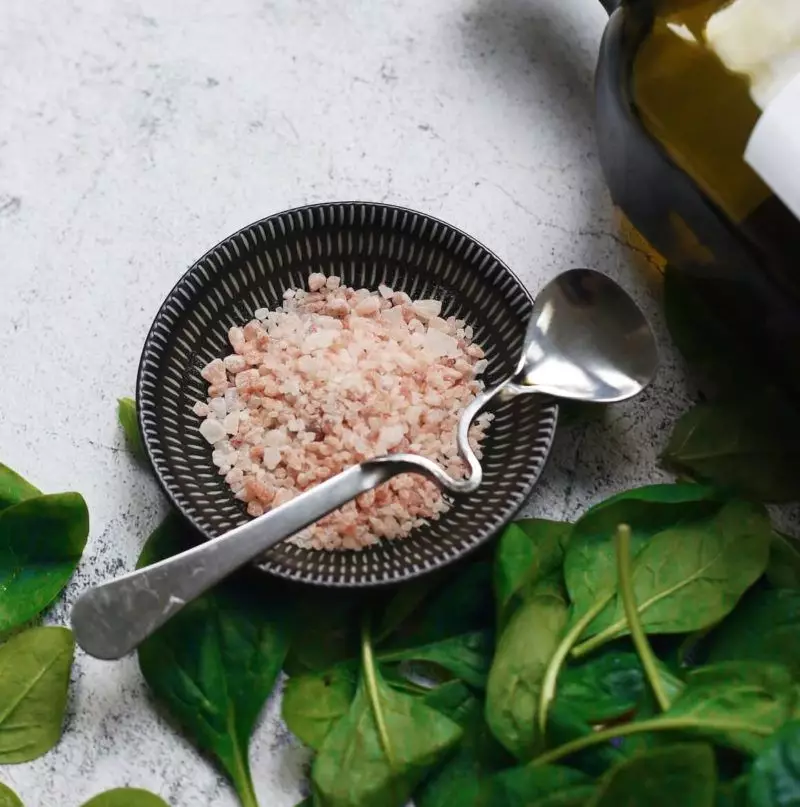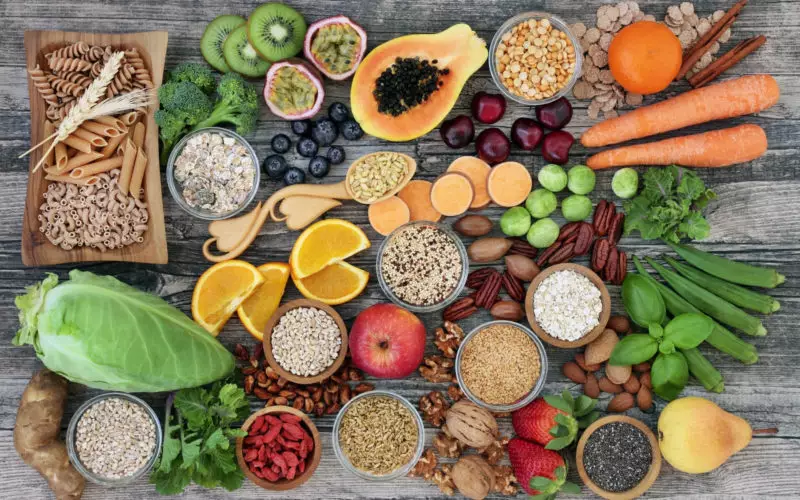
Nowadays, salt (also referred to as sodium) has become a must in every dish we eat because it enhances the flavor of food and is the “go-to”, easy way to make everything more delicious (including desserts, as most contain at least a pinch of salt).
However, with the growing industry of processed foods, the average amount of salt a person eats in a day has increased steadily. That being said, apart from being high in hydrogenated fats, sugar, and preservatives, processed foods also tend to have high sodium content. It may sound surprising, but according to the CDC, about 70% of the daily salt intake of Americans comes from processed and packaged foods (and not from the salt shaker).
This article will guide you through the daily salt recommendations, the risks of sodium overconsumption, and the potential health benefits of eating less salt on a daily basis.
Let’s dive in!
How much salt to eat daily?
According to the CDC Sodium and Dietary Guidelines Report, Americans are recommended to consume less than 2.300 mg sodium a day (about 1 teaspoon), as part of a healthy diet. [1] Keep in mind that the recommended intake may vary according to your health condition and dietary pattern.
For example, people suffering from high blood pressure or kidney disease are often required to follow different recommendations than healthy individuals. For those patient groups, the daily sodium intake goal may move towards 1.500 mg a day (depending on the recommendation by a healthcare provider or dietitian). [2]
Consulting your health condition with a medical specialist or registered dietitian is essential in order to receive tailored advice that will work best for you.
What are the risks of eating too much salt?
According to the FDA, the average American consumes about 3,400 mg salt a day, which is almost 50% more than the recommended dose. [3]
That being said, the regular overconsumption of salt plays a role in the development of various health conditions and diseases, including [4]:
- Hypertension
- Heart disease
- Chronic kidney disease (CKD)
- Osteoporosis
- Stomach cancer
- Edema (water retention in tissues)
However, uncontrolled consumption of salty (and processed) foods may play a role in development of other diseases closely linked to hypertension (e.g., vision loss, high blood sugar, cognitive dysfunctions, and metabolic syndrome). [5]

Why is eating less salt good for you?
Controlled consumption of sodium is linked to improving health and life quality. Evidence suggests that people who eat less salt (and meet the daily recommendation according to their health condition) may benefit from [6] [7]:
- Lower blood pressure and improved hypertension symptoms
- Reduced risk of heart disease and heart attack
- Reduced risk of stroke and vascular dementia
- Lower risk of diabetes (caused by raising blood pressure)
- Improved kidney health (lower risk of kidney disease, kidney failure, and kidney stone formation)
- Reduced risk of stomach cancer development
- Balanced water retention (linked to less swelling, puffiness, and cellulite)
• Fresh or frozen vegetables & fruits
• Fresh meats without added salt (you’ll find added salt in meats like bacon, sausage or deli meat)
• Low sodium canned or dried beans and legumes
• Low sodium dairy (like milk, yogurt and low sodium cheeses – mozzarella, Swiss & goat cheese are my favorite!)
Add flavor to your food using herbs, spices and acid (such as lemon juice or vinegar). Always remember to read nutrition labels for sodium content – sodium hides in many surprising places! And be careful of salty snacks like chips, popcorn, pickles and pretzels. Choose the low sodium versions of these food, or, swap out these traditional snacks for fruit!
Is it healthy to eat no salt?
Overconsumption of salt is definitely more common than underconsumption. However, some people may fail to see the golden middle or may go overboard with the advice of their healthcare provider. That being said, the body needs sodium to function properly. It is not advisable to eat less than 1,000mg of sodium per day consistently.
Low sodium intake may cause sodium deficiency and lead to low blood pressure and dizziness. Chronic low sodium intake can contribute to a condition called hyponatremia, which is a low sodium level in the body. [8]
Hyponatremia is usually caused by medications and illnesses that cause fluid retention or sodium loss. Hyponatremia imposes a serious threat to your overall health. Some of the primary symptoms include [9]:
- Nausea and vomiting
- Fatigue
- Confusion
- Muscle twitching and weakness
- Low blood pressure
This condition requires medical attention and strictly following the recommendations of your doctor.
Conclusion
Eating too much sodium can be detrimental to your health by increasing the risk of developing high blood pressure, as well as hypertension-related diseases. Sticking to balanced and controlled salt consumption can help you to reduce those risks and improve your overall health.
Disclaimer: This information is meant for educational purposes only. It is not intended to replace the counsel of a medical doctor.








